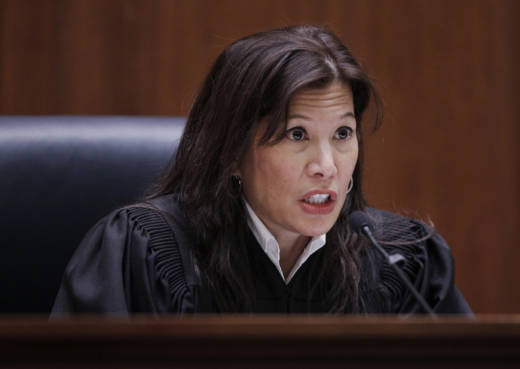The report states that there's a risk in releasing anybody before trial, but that California should move away from requiring defendants to put up money to secure their freedom and instead create pretrial service agencies in all of the state's 58 counties. Those agencies -- which already exist in many counties -- should use scientifically validated risk assessment tools, which consider a person's history and current charges, to help guide judges' decisions, the report states.
In some cases, a person could be released with no conditions. But in others, a judge could impose terms of a release that the pretrial service agency would help impose.
And when necessary, the report argues, judges should expand the use of preventative detention -- that is, keeping someone behind bars before they face trial -- if public safety cannot be addressed through release conditions.
Supporters of changes to bail plan to use the report to help shape their proposals.
Assemblyman Rob Bonta and state Sen. Bob Hertzberg authored two identical bills last year that aimed to do much of what the chief justice is recommending.
Hertzberg said the report refutes all the arguments made against that legislation.
"My heart is singing ... to see every one of the arguments that was thrown up at us has been torn apart methodically by this pretrial reform detention report to the chief justice -- it’s just extraordinary," he said. "The argument over and over again was, 'Wait for the report.' Great, we've waited for the report, and what did the report say? It says exactly what we've been saying all along, that the current money bail system is unsafe and unfair."
The lawmakers plan to revisit the issue in January after mixed results this year.
One piece of legislation stalled this year in the state Assembly and the other was put on hold after Gov. Jerry Brown asked Hertzberg and Bonta to wait until the chief justice's group finished its research to move forward with any legislation.
Ventura County Judge Brian Back, who co-chaired the judicial panel, said the broader conversation around bail so far has been about the injustice of people being forced to stay in jail who are not a public safety risk because they can't afford to post bail. That was of grave concern to the working group, Back said.
But he argued that under the status quo, the opposite is also true and just as troubling: Wealthy people who do pose a risk to the public are allowed to buy their freedom.
"That’s why some folks are released?" he asked. "Is that justice, is that fair? And equally importantly, is that really addressing the public safety?"
He said while critics of reforms argue that pretrial service agencies take away discretion from judges, bail actually does that now. That's because bail amounts are set by a uniform schedule, unique to each county, that takes into consideration only the current arrest charges. In some cases, people can post bail before they even see a judge.
The report also focuses on the rights of victims, noting that crime victims in California have a constitutional right to be heard regarding a pretrial release decision.
"Despite these protections, under the current system, if the accused has the financial resources to secure his or her liberty, it is often without any conditions placed on release," the report states. "In the development of the pretrial system, care must be taken to assure that all victims are offered the opportunity to be heard and for their input to be taken into account."
Back said that while some judges may be concerned that "somebody they release will go out and do something horrendous," there's no way to predict human behavior -- but you have a better shot when using information provided by a pretrial service program.
"There's no guarantee," he said. "But I want to be provided with as much information as possible with regard to their risk, as opposed to simply if they can afford bail."
